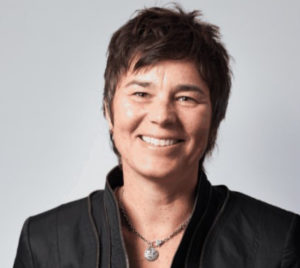

Dr. Joanna Starek
What I'm Hearing from the C-Suite Exactly One Year Into the Pandemic
A conversation with Dr. Joanna Starek, PhD., Head of Advisory Services at RHR International, and Advisory Board Member at Evolve Leadership
1. How are CEOs thinking of their roles now, a year into the COVID-19 pandemic?
First and foremost, I’ve seen that this past year has been humbling for most CEOs. Where you would think CEOs were very focused on the bottom line, I saw a switch to real authenticity, humility and a deep care for the wellbeing of their employees above all. This year, the Edelman Trust Barometer showcased employers as the #1 trusted stakeholder. People are looking to their leaders and trust them to make the right decisions for not only the business, but for them as well, and I think the last year has played a big part in that shift.
Second, the past year has been all about putting out fire after fire, but now it’s time to plan ahead. This means that coming out of the pandemic, CEOs are thinking about getting back to growth and focusing on the future. There is an optimism that the economy will explode, and with that comes concern about whether they are prepared for a potentially fast trajectory of growth.
2. What are you hearing right now from the C-suite as their biggest concerns and most pressing needs?
I think one of the biggest concerns for CEOs now is knowing how and when to get people back into the office, if at all. Many are re-imagining the workforce of the future, and the implications for productivity, culture and employee retention. A global CEO I spoke with very recently said his company will be returning to the office in the fall of this year, but that he had a feeling that in two years he may be doing something completely different.
Across the board, I’m hearing a lot of “let’s wait and see, and go from there” versus “how quickly can we go back to the way things were.” I think leaders realize they are not always going to get it right. They see a big opportunity here to reinvent the future of work, but there is ambiguity here, and there is lack of control. When CEOS understood the pandemic was not going away any time soon realized they had to adapt to that lack of control, and new behaviors had to be learned – and that’s still true today and will be for the foreseeable future.
I think the pandemic also taught CEOs that they are not invincible. Neither are their employees. Maintaining personal wellbeing is a crucial executive skill and one that has to be learned. This is where Evolve gets it right by prioritizing the whole person and focusing on all dimensions of who they are as individuals and creating an ecosystem of support in all areas of their lives.
3. What will it take for the next wave of CEOs to thrive in an even more complex, unpredictable environment?
Being a CEO is about learning to live with dynamic tension. For example, to thrive at the senior executive level, a leader must be both humble and courageous at the same time. It’s a careful balance of acknowledging what you don’t know and also having the courage to take a stand in the face of ambiguity.
If a CEO only has courage and decisiveness but can never step back and learn from others, they will struggle and have a narrower scope of influence. On the flip side, if they’re humble and always asking for input but can’t be decisive enough to move the company forward, that’s a problem.
Dr. Jim Loehr, one of Evolve Leadership’s Advisory Board members and Executive Coaches just co-wrote a book alongside Evolve Leadership CEO Caren Kenney, called “Leading with Character,” where he talks about exactly this: humility and courage as two “muscles” that make up overall character strength. A leader must be strong in both muscles to perform at his or her best, and work to strengthen whichever muscle needs more work, just as you would a physical muscle.
4. Did CEOs invest more or less in themselves this past year?
I think that CEOs have been putting themselves second. It is interesting because many CEOs have the reputation of being self-focused and too bottom-line-focused, but through this pandemic, I have found many – if not most – to be focused on prioritizing the care and safety of their employees more than anything else.
As a result of this, I’ve had conversations with boards where they have been pushing their CEOs to invest in themselves and their leadership teams by bringing on organizations like Evolve Leadership to preserve and maintain their well-being in these challenging times. The more experienced CEOs know they need to invest in themselves, but some newer to those roles need that permission. Boards play a very important role in empowering that move and ensuring C-Suite leaders don’t burn out, as so many do.
5. Why is a holistic approach to executive leadership development the key to building a sustainable leader?
The premise of what Evolve teaches is foundational for thriving in a high stakes environment. These are skills that are practiced and learned. Although the word resilience may be overused, I think it is critical to performing at your best – for the long-term. And the only way to become more resilient is by managing your energy systems in a way that allows you to remain centered even in the middle of chaos… especially in the middle of chaos! I think it comes back to the dynamic tension – you have to build enough resilience in yourself to thrive in that environment and not be defeated by it. The CEO role just happens to be one of the hardest environments to do that in.
Beyond “holistic” meaning whole-person and whole-life, I see “holistic” to also mean going beyond the one leader: what is the top echelon of leadership that someone can achieve, not just for themselves but for their teams, and for their companies? A thriving executive can lead a team to thrive. And thriving teams contribute to thriving organizations. However, you have to be a really well-founded person to make that happen. And that’s what Evolve Leadership brings to the table: rolling impact that contributes to a company holistically.
6. What do you tell leaders who feel they are in control and don’t need executive leadership support?
I ask, what have you not achieved in your life yet that you’ve wanted to, and what’s getting in the way? If there’s something undone in your life (and there always is, whether professionally or personally), why not be open to techniques and tactics that are proven scientifically to work?
The principles behind what Evolve Leadership teaches are not just a philosophy—they are rooted in decades of data and research in leadership and also in elite athletes. The science actually stands up even more in the world today – COVID-19 revealed many cracks in the executive leadership system, and there is a need to teach leaders how to maintain energy and increase resilience in the most challenging situations.
As a trained sports and performance psychologist, I remember there was hesitancy among athletes in the 80’s who thought a holistic approach to high performance was “soft.” But now, you don’t see a single athlete who doesn’t live by these principles. The business world is following suit.
7. What is the future of executive leadership to you?
To me, the future of executive leadership will be leaders who are thriving in a more connected, diverse, global world, and who are comfortable with ambiguity and not having all the answers.
I also believe that the future of executive leadership is about realizing that continually working on your own self-evolution is part of becoming a great leader. It isn’t something you do once, or just when you feel you need it. It’s a life – long journey.
Joanna Starek, PhD, is head of Advisory Services at RHR International, a global advisory firm which provides a suite of services for C-level executives, top teams, and boards. As a trained sports and performance psychologist with deep-rooted business expertise, Joanna is uniquely positioned to guide leaders toward their fullest potential under high-pressure scenarios. In her capacity as Advisory Board Member and Executive Coach at Evolve Leadership, Joanna brings a holistic mindset to her work, specializing in advising CEOs and boards who are navigating hyper-growth. She has provided leadership advisory services to CEOs and boards for the past 15 years and works with organizations ranging from Fortune 100 corporations to privately held companies and entrepreneurial startups.
